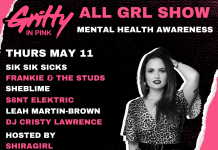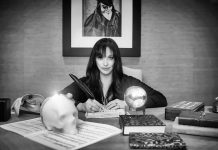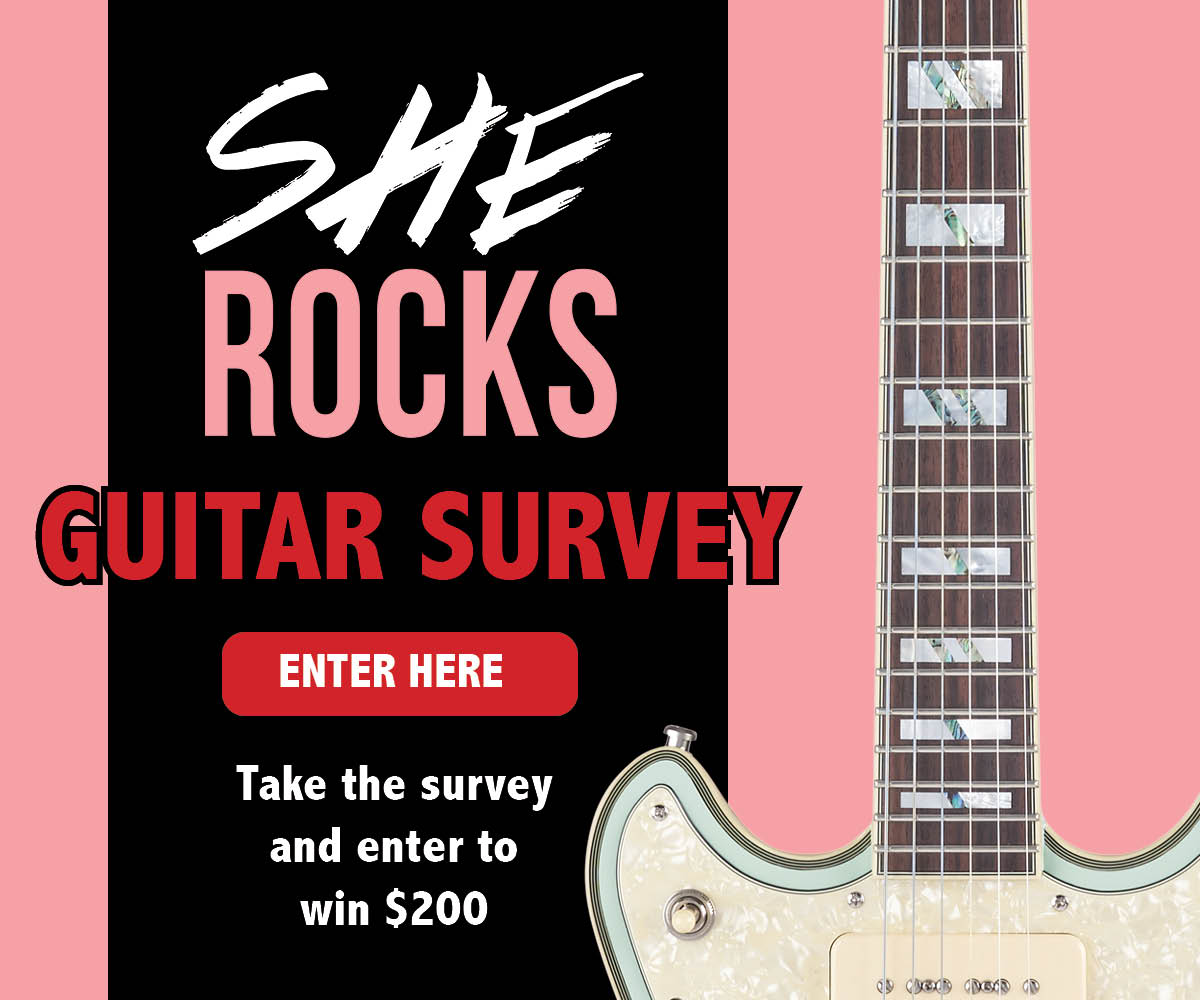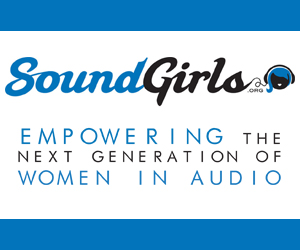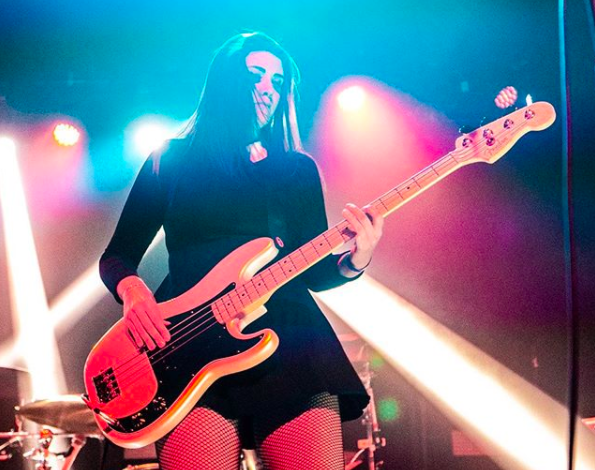 Leanne Bowes is a self-taught studio and touring bassist who began her professional career at age 23 with all female pop punk band Hunter Valentine in 2013. She has traveled the globe opening for a variety of big named artists from Sum 41 to Cyndi Lauper, and has performed in festivals like SXSW, Vans Warped Tour, and Japan’s Summer Sonic Festival.
Leanne Bowes is a self-taught studio and touring bassist who began her professional career at age 23 with all female pop punk band Hunter Valentine in 2013. She has traveled the globe opening for a variety of big named artists from Sum 41 to Cyndi Lauper, and has performed in festivals like SXSW, Vans Warped Tour, and Japan’s Summer Sonic Festival.
Along with her experience as a musician, Leanne is also an accomplished writer and producer. She wrote and recorded the soundtrack for Acrovelo’s teaser trailer (2016) and the Cannondale CX World, 3 part series (2016). She worked as a musical director for artists John Early and Elana J. And, like so many artists today Leanne found herself shifting gears when all live performances were suspended until further notice due to the devastating effects of COVID-19.
We reached out to Leanne and learned what influenced her love for playing, which gear brands are her go to, what she is doing to remain creative during this global shut down, and where she sees the future for the industry post pandemic. Learn more about Leanne Bowes on her website here.
WiMN: Ever since the COVID-19 shut down took place many artists and musicians found themselves out of work. How has this effected you, and have you found alternative methods of generating income?
LB: Yes, music is a main source of income for me when things are status quo, and I was actually supposed to be on a North American tour right now that would have certainly kept me busy! However, like a lot of my peers, I have income on the side for when the music business is slow. I actually am a Technical Recruiter and work remotely anyway, so I am one of the very lucky few who is able to maintain that income in the crisis. It’s a job that I’ve had for years and I actually take it on the road with me– I’ve interviewed candidates from the side of a stage or from my bunk of a tour bus more than once! I feel incredibly grateful to be employed right now (and have been able to use my skills to offer interview / resume advice to my friends who are out of work, too!)
WiMN: Your resume reflects more than your work as a bassist. You also play guitar, and have experience as a writer and producer. When did you discover your desire to write/produce? Are you working on any current projects?
LB: So that’s one major silver lining of the lock down for me– rather than rushing around between rehearsals and shows and tours, I have actually had time to write my own music. When it comes to songwriting, my strengths lie more in collaboration, so it’s been a challenge to complete songs on my own. Since I usually am in the studio playing tracks for or producing other people’s songs, the desire hit me when a light bulb went off and I said, “I can do that!” I think I’ve always over-complicated songwriting, so this time off has let me have a little no-pressure fun with it. I’m about to release a debut EP under the name of my project, Badways.
WiMN: Let’s talk gear. What is your preferred equipment? Do you use different gear in the studio versus on tour?
LB: When it comes to playing live, I have a small pedalboard that I feel covers all of the bases for the different styles I might play. If I’m playing a pop gig, my Empress compressor pedal achieves the perfect tone. If I’m playing a grittier rock gig, I love my Bass Drive pedal from Fulltone. I also have a few octave and delay pedals on hand. I’m usually holding one of my Fender P-Basses, and I typically gig with an Ampeg BA112V2 1×12 75W Bass Combo. Recently I started incorporating a Moog Sub Phatty into my setup for synth bass as well! As for my home studio, I find myself using the preset tones in Ableton a lot since I find it easier to get the right mix dialed in (versus going through my usual pedals).
WiMN: You began playing bass in your preteen years. Did you have the desire to pursue this as a full time career from jump?
LB: No, actually! Music was just a hobby for me until I was 22. My dad was a drummer, we used to jam together, and I naturally gravitated towards the instruments he always had laying around, but I specifically picked up the bass when I was 12 years old. I learned every CD in my house and beyond, which is how I taught myself to play. I was always in bands, but I went to college to study advertising. My dad actually passed away when I was 21, and it made me realize how short life is. He spent most of his life behind a desk when he wanted to be behind his drumkit, so I quit my day job and hit the road with Hunter Valentine which launched my professional career as a bassist.
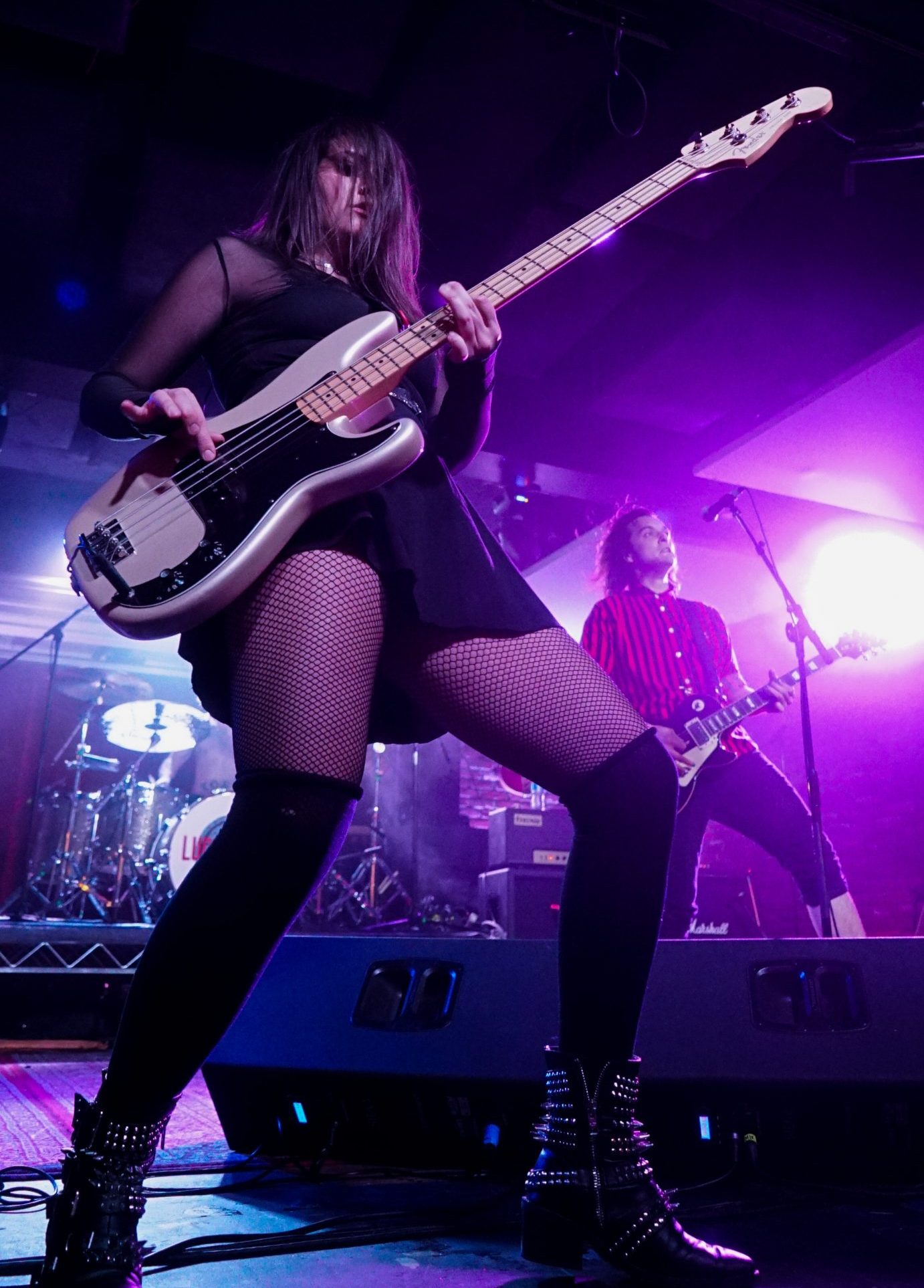
WiMN: From your own personal experience, what is your winning formula for marketing yourself via social media? How do you cross engineer that for recording and touring?
LB: I actually have gotten booked on more than one tour from Instagram! It’s an incredibly powerful tool, and the most important part of my formula basically comes down to engagement. You get what you give– typically, people will like your posts if you’ve liked theirs, people will follow you back if you’ve followed them, people will tag you on a gig posting if you’ve tagged them on one. From there, make sure your content is valuable! If you want people to land on your Instagram page and say, “damn, I could use her for a gig!”, make sure your whole feed isn’t pictures of the pasta you made last night. Put yourself in someone else’s shoes and decide what they would want to see in order to hire you for a tour or for a studio session. (If you really want to share those pasta pics, consider making a separate personal account!)
WiMN: What is your favorite genre to play and why?
LB: My first experience with touring professionally was with the pop-punk band Hunter Valentine. In one of our early rehearsals, Kiyomi joked that she was going to chase me around a field while I played the songs to teach me how to move around on stage before playing our first Warped Tour together. She and Laura really opened up a whole idea of “stage presence” for me, and for that reason I LOVE playing pop-punk. I grew up listening to bands like Green Day and The Offspring, so I feel right at home bouncing around on stage, kicking, whipping my hair, and snarling at the crowd. Really, any music that lets me cut loose and lose myself on stage makes the whole experience of performance cathartic.
WiMN: Where do you see the future of live music and touring post this global pandemic? Do you have any advice for musicians looking to remain active during this economic crisis?
LB: As for the future, we will find a way. It might not look like it did before, but I’m confident I will be on some kind of tour by 2021– whether it’s a drive-in tour, a virtual tour, or a 10-capacity max tour.
My advice for remaining active as a musician is to lean heavily on the technology that we’re so fortunate to have (but take breaks when you need it– I actually have a time-limit set on my IG to prevent me from diving too deep). Keep promoting yourself to stay top-of-mind when the pandemic lets up, take virtual lessons to keep your chops up, and stay connected to your peers in the industry as much as you can. All of this can be done for free! And if you need resume help to get set up with a virtual job, you know who to call!




